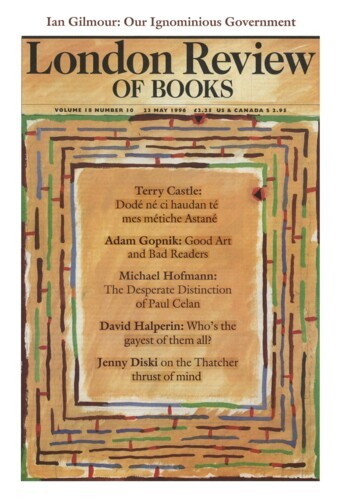A word to come lies in a little night
where ash is falling.
The word can’t be this ‘coffin’,
lying in its candour, in its cinders.
Inside, the poet’s too lazy in his death
to perform a truth singly. All’s ambiguous.
Yet a coffin is blocked in boldly, I see,
under the washing down of night.
The cobalt blue cabinet’s cut on a slant
with candelabra making mirrors
along its sides peopling it with mourners,
delegates from the governments of poetry
and from their industries, who appear
only as reflections of shoulders.
Hostility of moths round the candles.
Hostility of mouths still saying ‘coffin’.
The coffin waits in this little night
for the whole day’s train.
My own face, visible in the mirrors now,
is a bruise again floating in hints of crystal.
I don’t yearn towards my shadow, bowing
to it, reaching out to find lost unity;
for if the shadow really touched my finger
untruth would constitute truth, whereas
as Buber knew, the process takes a Thou.
Our shadows lack performance;
they are a text created by the dusty mirror:
I do all the touching and my finger
returns with its ashen tip, as you
the reader, when you touch these unreal ashes,
find your own fingertip is clean.
In our candour to be truthful, we’re very stern
and talk too much of loss, covering our truths
with ashes – like authoritarian fathers
who damn their sons with an over-strict word:
‘You’ ll never amount to anything.’
The word I care about
(it’s been lying inside the slant cabinet)
wakes and now performs itself.
The word becomes ‘Celan’, formerly ‘Antschel’:
the only poet I have to struggle against
because none wrote more beautifully post-war
of the perfection and terror of crystal.
Send Letters To:
The Editor
London Review of Books,
28 Little Russell Street
London, WC1A 2HN
letters@lrb.co.uk
Please include name, address, and a telephone number.

